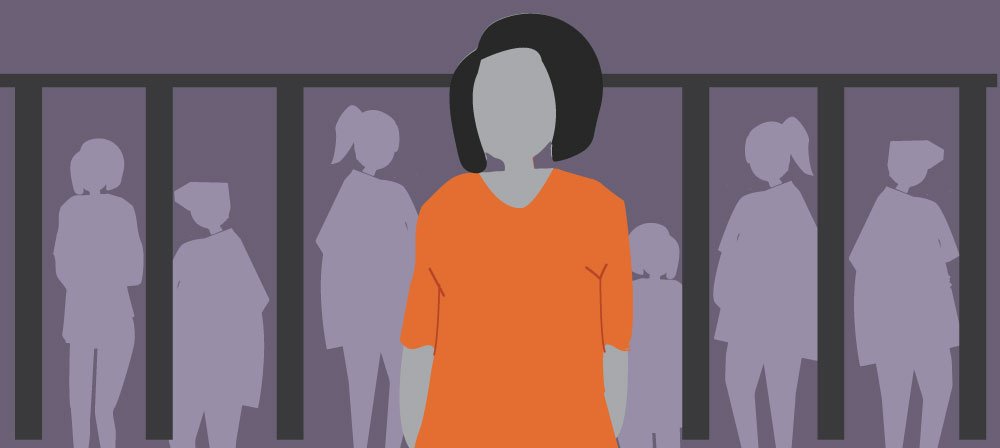Stigma and Discrimination
Users News investigates police responses to mental health emergencies and the possibilities and realities of alternative first responders. This is a deep dive into the options available to you in a time of severe mental distress and why police may not always be the best people for this job.
“Can’t get angry though, because one angry blackfella means we’re all angry blackfellas. Yet a handful of incompetent whitefellas means what? The system. I want you to care. I want you to be angry, too. I want you to hate this.”
Hate This, is a powerful piece written by Carissa Lee, a Noongar actor and writer whose work has featured in The Guardian, Junkee, Witness Performance, IndigenousX and The Conversation. We are happy to be able share the piece both as written text and spoken word performed by First Nations actor Angeline Penrith.
Exhaustion is a one-women radio play about life after jail. Jarrah, a woman in her 40s, gives the audience a massive dose of ‘real talk’, offering her vulnerability and her struggles to overcome the challenges of life after release from jail. She inspires empathy and concern as she shares the things that are important to her and how she feels.
I first sought out an ADHD diagnosis when I was 23, and the psychiatrist told me, “No, actually you just have the learning capacity of a 16-year-old due to your drug addiction.” Yikes. It took me a couple of years to wrestle with that message – to make sure I rejected it on a deep level – before I tried again with another doctor. And boom, I was right: my ADHD scored off the charts. No wonder amphetamines help my brain feel regulated.
When you’re beginning your journey of drug use, it is easy to get a bit overenthusiastic and end up lost, especially when you don’t have any elders around to help guide you. Akshay spent a lot of time worrying that cannabis and LSD had given him drug-induced anxiety, depersonalisation and psychosis, but he eventually realised that the people who were trying to help him held some negative attitudes towards drugs, and he needed a more supportive — and experienced — community around him.
Pat is a gay Aboriginal man with bipolar. He shares what it’s like to get caught with drugs and then be noticed by police for the rest of his life.
Our handy new table lists the penalties you could get in NSW for possessing different quantities of the most common drugs.
Most of society doesn’t realise this stuff happens. Shane is a peer worker who lives and breathes NUAA’s mission to advance the health, rights and dignity of people who use drugs. Unfortunately, Shane is regularly stopped by police and his healthy fear of police means he can barely breathe around them — which makes him look even more suspicious.
Drug and Alcohol Multicultural Education Centre (DAMEC) held focus groups to give a voice to people living in Western Sydney, who are from culturally and linguistically diverse backgrounds and who use drugs, around their experience of incarceration.
Siobhan was stunned into silence by her patronising doctor. While that time she made a strategic decision not to confront him, now she demands health workers show her the respect that she deserves.
Wayne was finding stigma a barrier to even getting health complaints diagnosed, let alone treated. That's why, finding a professional, non-stigmatising doctor was like “a breath of fresh air”.
Molly talks about how some health workers made her unwilling to be open about recreational drug use. And the slightly unorthodox way some ER workers put her at ease.
People from overseas may face particular challenges seeking health care such as hepatitis C assessment, treatment and care.
For Aboriginal people in Australia, police harassment is a daily fact of life. For Aboriginal people who use drugs, this is doubly so.
Language is powerful, especially when talking about alcohol, other drugs and the people who use them
Chad has written this opinion piece, reflecting on the shifting sands around accessing prescription opioids based on his own use of pain medications
Regardless of whether we’ve done something wrong, none of us like dealing the police. When stopped by the police, it can be difficult to know what you should do, which is why it’s important to know what your rights are when dealing with the police
When we were putting together this "Rural Edition", we wondered what it was like as an ice user living in the bush?




















Alcoholics Anonymous (AA) and Narcotics Anonymous (NA) help a heck of a lot of people. But these group sessions may not be for everyone. New peer support groups, which don’t rely on the AA/NA approach, are beginning to emerge in Australia for people who choose to use drugs. What are they? And who can they help? Users News dives into the alternatives available to you.